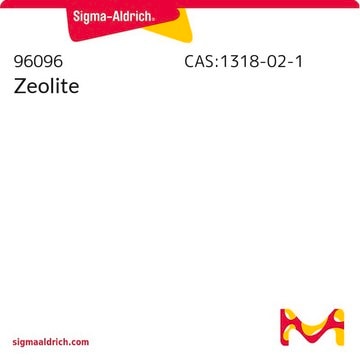691348
Basolite® Z1200
produced by BASF
Synonym(s):
2-Methylimidazole zinc salt, ZIF-8
About This Item
Recommended Products
grade
produced by BASF
form
solid
greener alternative product characteristics
Design for Energy Efficiency
Learn more about the Principles of Green Chemistry.
sustainability
Greener Alternative Product
surface area
1300-1800 m2/g , Langmuir surf. area
particle size
4.9 μm (D50)
bulk density
0.35 g/cm3
greener alternative category
, Enabling
SMILES string
CC1=NC=C[N-]1.CC2=NC=C[N-]2.[Zn+2]
InChI
1S/2C4H5N2.Zn/c2*1-4-5-2-3-6-4;/h2*2-3H,1H3;/q2*-1;+2
InChI key
MFLKDEMTKSVIBK-UHFFFAOYSA-N
General description
Zinc imidazolate frameworks (ZIF)
Application
Other Notes
Legal Information
Signal Word
Danger
Hazard Statements
Precautionary Statements
Hazard Classifications
Acute Tox. 4 Oral - Skin Corr. 1B
Storage Class Code
8A - Combustible corrosive hazardous materials
WGK
WGK 3
Flash Point(F)
Not applicable
Flash Point(C)
Not applicable
Personal Protective Equipment
Choose from one of the most recent versions:
Already Own This Product?
Find documentation for the products that you have recently purchased in the Document Library.
Customers Also Viewed
Articles
Metal-organic frameworks (MOFs) are porous, crystalline materials composed of metal ions bound by organic ligands.
Metal-organic frameworks (MOFs) are porous, crystalline materials composed of metal ions bound by organic ligands.
Metal-organic frameworks (MOFs) are porous, crystalline materials composed of metal ions bound by organic ligands.
Metal-organic frameworks (MOFs) are porous, crystalline materials composed of metal ions bound by organic ligands.
Our team of scientists has experience in all areas of research including Life Science, Material Science, Chemical Synthesis, Chromatography, Analytical and many others.
Contact Technical Service












